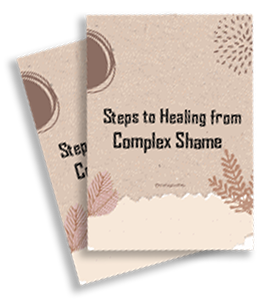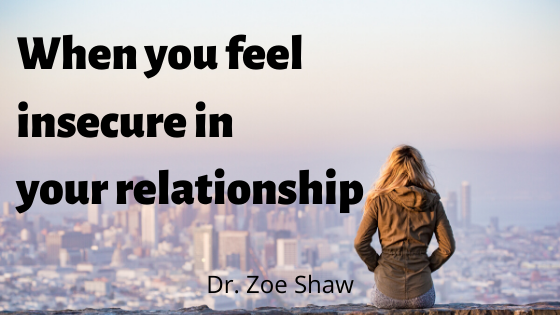I’m sure you’ve thought yourself or heard someone say, “I married my mother” or “I married my father.” Oodles of truth exists in that statement. Despite our inability to recognize it, we do often marry someone like our mother or our father.
Why?
First and foremost, we confuse familiarity with attraction. We’re attracted to what we know. Secondly and most importantly, unless you have done a lot of work on yourself prior to coupling with your spouse, most people marry or partner with someone that has a characteristic that is similar in some way to our mother or our father’s because we are unconsciously attempting to resolve old conflicts and feelings left over from these early relationships.
I can view my husband through the lens of years of therapy and training clearly see what those characteristics are. I couldn’t consciously see them 27 years ago, although my unconscious mind picked up on them immediately and said, oh- here’s an opportunity to fix this- I’m going to choose him.
But the good news is it’s not a bad thing! Imago therapy explains that the healthiest thing we can do is to repair those wounds through a healthy, loving relationship.
Our parents have a profound and long-lasting effect on us. Even absent parents have a profound impact on us.
They were the mirror through which you learned to see yourself. If you mostly had a positive, encouraging, supportive mirror, you likely grew up with healthy self-esteem. If that mirror was predominantly judgmental, critical, unsupportive, or disinterested, then your self-worth is likely at the lower end of healthy.
So, what can you do about this?
You can take some of the skills developed by Dr. Harville Hendrix and Dr. Helen Lakelly Hunt and apply them to your relationship. How? I’ll show you.
First, what is Imago Relationship Theory?
Otherwise known as IRT, Imago Therapy was developed by Dr.’s Hendrix and Lakelly. They are also authors of The bestselling book “Getting the Love You Want: A Guide for Couples”.
The Latin word “Imago” means “image,” and it refers to the “unconscious image of familiar love” and it includes all the good and bad traits of our caretakers who were our first sense of what love was and it creates a “blueprint” of the person we ultimately seek out as a partner.
Elena Bahar in her article – Imago therapy: How Can it Heal Relationships said that:
“The relationship with our primary caregivers in the most formative years of our life (between 0-36 months) shapes a template with which our body and brain have encoded care, love and family. So, how our primary caregivers treated us and one another especially during those early years, leaves a huge neurobiological imprint on our nervous system and directly impacts how we take in sensory information in the world around us and from that, we develop what will be our adult attachment style.
It’s important to remember that much of this process happens when we are in pre-verbal stage of development when we lack a level of sophistication in understanding what is happening and communicating our needs. So what ends up happening is later in life we are likely to unconsciously pick out partners whose characteristics resemble a parent’s trait, both the positive traits and the negative ones!
This is partly because what feels familiar feels comforting and also it’s our way of trying to heal certain painful experiences in search of dealing with the unfinished business from the past so we could somehow restore the sense of joyful aliveness we began with as children. Because a lot of this process happens unconsciously, we tend to reinjure ourselves throughout the process in our effort to heal.”
Think about this- If you have to re-injure yourself along the way to heal, but you don’t actually know that you are doing that, then you end up perceiving your spouse as the perpetrator of that hurt and you the victim. You are intermittently or maybe even constantly being triggered and responding from actions far, far ago.
Imago theory says that the only way to heal this is to make the unconscious conscious and build awareness of the agenda that you bring into the relationship that was created and colored from your childhood.
You want to move towards a more conscious relationship, but this takes work, walking through fear, consistency and dedication.
If you’re feeling brave, share this blog post with your partner. If your partner is unwilling, you can do these exercises by yourself. Or if you are not partnered at the moment, think of your last relationship. Working through these issues now will be beneficial to you in your next one.
Intentional Dialogue process:
I’m going to ask you to practice an Imago technique called the Intentional Dialogue process: It may sound simple, but it is profound in that it runs counter to the way most of us communicate, especially when we are feeling hurt.
There is something powerful about feeling heard for we human beings. It’s one of the reasons why therapy is so… therapeutic. To have someone give you undivided attention that is all for you, a human being who is listening and not defending is immensely validating.
Ultimately what we needed as children, what we’ve carried with us into adulthood is a powerful need to be seen, heard, loved, accepted and valued for who we are, unconditionally. Whatever your childhood issues are- they’re usually hanging around in that arena.
Intentional Dialogue asks you to do three things when communicating with your partner:
1. Mirror
2. Validate
3. Empathize
You will find that no matter how upset someone is when you validate their anger, it completely diffuses. When you ignore, defend or express a lack of understanding, it magnifies.
Basically, with Intentional dialogue, you are holding space for your partner’s experience, even if you disagree. Yes, you do not have to agree with them to practice this skill. In fact you really only need this skill when you are in disagreement.
So what does mirroring look like? When your partner expresses a concern, you mirror or parrot back to them what they said, “ If I’m hearing you correctly, when we have to leave the house at a certain time and I’m not ready, you feel like I don’t care about you.”
Then you validate: “ I can see how you feel that way… that makes sense to me.” Okay, maybe it doesn’t make sense to you. Maybe it’s the dumbest thing you ever heard. Of course, you being late has nothing to do with him. You have trouble managing your time everywhere- or maybe if he helped with the kids instead of only focusing on getting himself ready when you have 3 people to get ready, you’d be able to get in the care on time. I get this, You’re right too. Remember that our imago evokes deep emotional reactions in us that cause us to react disproportionately to events in our present.
What I want you to make sense of, isn’t his reaction, but an understanding of what it feels like to feel uncared for and disrespected. That makes sense. And this helps you with the next step: Empathy.
Empathy looks like “ I can understand that you feel like I don’t care about you when I’m late. That sounds like a painful experience.” That’s it. This simple response creates a sense of safety in your relationship that opens doors for more communication.
Behavior Change Request
A second skill that Imago therapy teaches is a Behavior Change Request. You’ve probably figured out that criticizing your husband and detailing all his wrongs doesn’t really result in more positive behavior.
The Behavior Change request teaches you to clearly express a single specific frustration, such as feeling ignored and offer your partner three potential options for changing the behavior:
1. Call me once a day during work to check-in.
2. Leave your cell phone in the other room during dinner.
3. Ask me how my day went when I come home from work.
Your partners then has the freedom to choose one action to try. If both of you make these declarations with options, it’s called stretching. Both of you are learning to make a small change to better meet your partner’s needs.
If you’re interested, you can find an Imago therapist near you if you live in the United States or Canada here: https://www.imagorelationshipswork.com/couples-and-individuals
If you live outside of the United States or Canada: http://imagorelationships.org/imago/communities-of-practice/
Understanding how your childhood significantly influences your choice of a partner and the resulting relationship, may feel daunting.
Essentially, I’m putting a label on something you already experience, so it’s nothing new. Now you have a few tools to tackle it. I can’t fully explain Imago and Imago therapy in one blog post, so if I’ve piqued your curiosity, I encourage to you seek out more education regarding it.
You’ve got this

Subscribe and Heal your Relationships.
You deserve a healthy, loving relationship and it starts with You. Learn how to untangle
Complex Shame™ and co-dependency to finally have the beautiful, secure relationship with
yourself and others that you’ve always wanted.
Subscribe and as a thank you, I’ll send you the Steps to Healing from Complex
Shame™.













